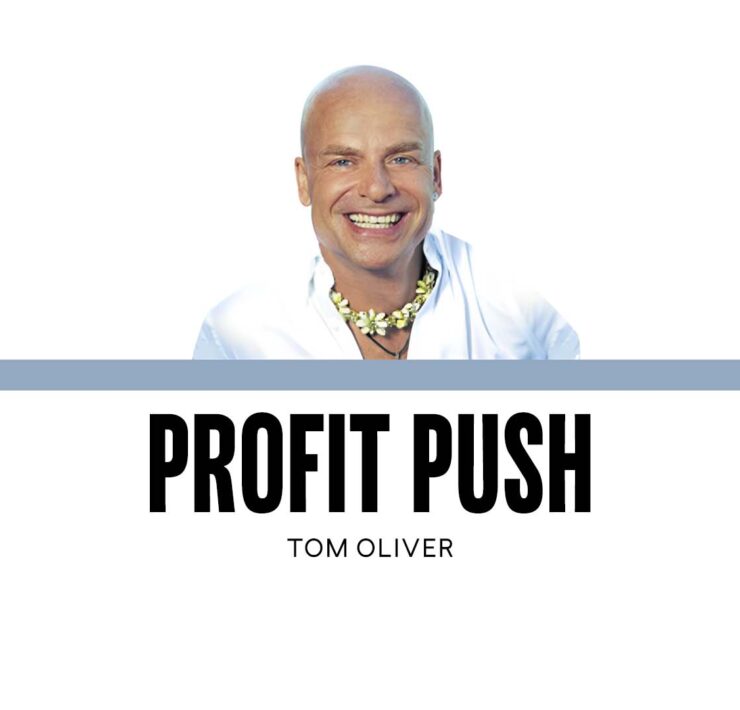The invisible handshake: The power of your reputation in business
Besides being the founder and global group chair of my worldwide strategy and management consulting company, I have also been a graduate executive MBA professor for more than 13 years. I know that many of the most important keys to success are not taught at business school. One of them is how to create a great network.
Growing up in a small town in Germany, my family didn’t have much. We weren’t wealthy, and money was a constant concern. I wasn’t born with a silver spoon or a vast network. Instead, I built my global network from scratch. Now I am regularly interacting with or advising heads of state, Nobel laureates, Fortune 500 CEOs, some of the world’s wealthiest business owners and many of the world’s most famous business leaders. How did I pull that off? My journey taught me that—besides expertise and unique skills—reputation and trust are the most important.
The foundation of success: Reputation and trust
All of the clients of my global strategy and management consulting company go through a due diligence process and background checks before we take them on. We are in the fortunate position that we can choose who to work with and regularly turn requests away.
Recently, we discovered that one of our new prospects, a family business owner, despite maintaining a good public reputation, has questionable ethical standards. This individual has a pattern of engaging in unethical practices whenever he believes he can get away with it, disregarding clear agreements.
In business, your reputation is your most valuable asset. It precedes you in every room, opening doors that would otherwise remain closed. Trust is the currency of this reputation. It’s what turns introductions into partnerships and handshake deals into long-term relationships.
A handshake should carry the same weight as a signed contract, and a verbal agreement should be as binding as one certified by lawyers. For instance, a family business we work with, which has thrived for 55 years and serves hundreds of millions of consumers worldwide, entrusts us with its most confidential financial details without even requiring a nondisclosure agreement. This level of trust demonstrates that reputation and integrity form the backbone of business relationships.

Ethics as a competitive edge
Ethical behavior in business is often viewed as a moral responsibility, but its practical benefits cannot be overstated. High ethical standards are not just about adhering to laws or regulations; they serve as a unique competitive edge in the marketplace. Companies and leaders known for their integrity attract top-tier talent, loyal customers and trustworthy business partners. These stakeholders are more likely to invest their time, energy and resources in organizations they perceive as ethical and dependable.
A strong commitment to ethics creates a culture of accountability and transparency within the organization. Employees feel safe and empowered when they work for a leader who values honesty over shortcuts. This sense of trust fosters innovation, collaboration and long-term employee retention. For example, one of our long-standing clients—a multigenerational family business—has continuously expanded into new markets while maintaining an impeccable reputation for ethical dealings. This reputation has not only attracted lucrative partnerships but also positioned the business as a trusted leader in its industry, ensuring its sustainability over decades.
Moreover, ethical behavior often translates into better decision-making. Leaders who prioritize long-term relationships and sustainable growth over immediate profits avoid the pitfalls of hasty, ill-conceived decisions. They cultivate trust within their ecosystems, which acts as a buffer in times of crisis. Ethical businesses are less likely to face reputational damage or costly legal battles, giving them a competitive advantage over peers who choose to cut corners.
Lessons from the fallen
History is littered with examples of leaders and companies brought to their knees by unethical behavior. These cautionary tales highlight that success achieved through dishonesty is rarely sustainable and that the costs of unethical decisions often far outweigh their short-term benefits.
Consider the downfall of Enron, a company once hailed as one of America’s most innovative enterprises. Its executives engaged in fraudulent accounting practices, inflating profits to maintain investor confidence. When the truth emerged, Enron filed for bankruptcy, erasing thousands of jobs and wiping out billions in shareholder value.
Another example is the Volkswagen emissions scandal. The company deliberately installed software in millions of cars to cheat emissions tests, allowing it to market vehicles as environmentally friendly when they were anything but. The scandal cost Volkswagen billions in fines, lawsuits and vehicle recalls, and it severely damaged brand reputation. Rebuilding that trust has been a long and arduous journey for Volkswagen, underscoring the heavy price of unethical shortcuts.
These cases demonstrate that the ripple effects of unethical decisions extend far beyond financial loss. They destroy careers, tarnish reputations and leave organizations struggling to regain public trust. For leaders, the takeaway is clear: shortcuts in ethics may provide temporary gains, but they often lead to irreversible damage.
The fragility of success
Success in business is fragile. Most companies are only one or two major strategic decisions away from total failure. A lapse in ethical judgment can be one such misstep, with far-reaching consequences. It’s crucial to maintain high ethical standards, even when faced with challenging decisions.
Leaders who cut corners or bend the rules often rationalize their actions by assuming no one will notice. However, word spreads quickly in the business community. When trust is eroded, opportunities disappear, and partnerships dissolve. Worse, leaders who operate unethically may not realize the damage until it’s too late, as few are willing to confront them directly.
The ripple effect of leadership
Unethical behavior at the top doesn’t stay contained; it trickles down through the organization. As the leader, your actions set the tone for your company culture. If you compromise on ethics, it sends a message that dishonesty and cutting corners are acceptable. This behavior can lead to a toxic environment where employees feel justified in bending the rules.
On the flip side, leaders who uphold integrity inspire their teams to do the same. Ethical leadership fosters a culture of accountability, transparency and mutual respect, which in turn drives innovation and growth.
Five to thrive
- Prioritize integrity in every decision
- Cultivate a culture of trust
- Invest in long-term relationships
- Learn from failures in ethics
- Implement ethical accountability systems
Tom Oliver, a “global management guru” (Bloomberg), is the chair of The Tom Oliver Group, the trusted advisor and counselor to many of the world’s most influential family businesses, medium-sized enterprises, market leaders and global conglomerates. For more information and inquiries: www.TomOliverGroup.com or email Tom.Oliver@inquirer.com.ph.


















